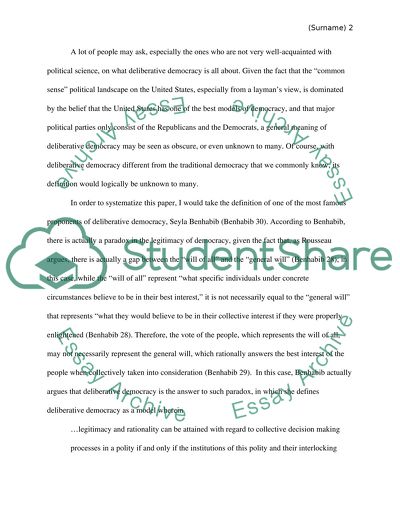Cite this document
(“Democracy and Citizenship Term Paper Example | Topics and Well Written Essays - 1500 words”, n.d.)
Retrieved from https://studentshare.org/environmental-studies/1408600-democracy-and-citizenship
Retrieved from https://studentshare.org/environmental-studies/1408600-democracy-and-citizenship
(Democracy and Citizenship Term Paper Example | Topics and Well Written Essays - 1500 Words)
https://studentshare.org/environmental-studies/1408600-democracy-and-citizenship.
https://studentshare.org/environmental-studies/1408600-democracy-and-citizenship.
“Democracy and Citizenship Term Paper Example | Topics and Well Written Essays - 1500 Words”, n.d. https://studentshare.org/environmental-studies/1408600-democracy-and-citizenship.


